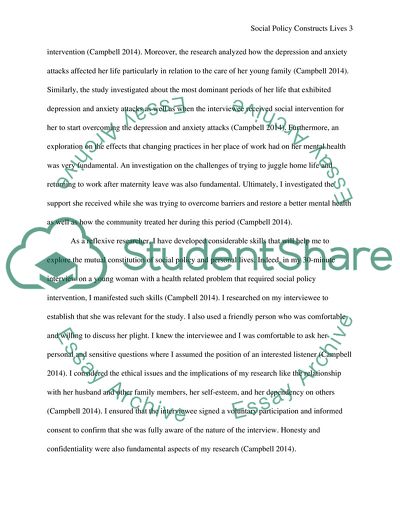Cite this document
(Social Policy Constructs Lives: Mutual Constitution Literature review Example | Topics and Well Written Essays - 3000 words, n.d.)
Social Policy Constructs Lives: Mutual Constitution Literature review Example | Topics and Well Written Essays - 3000 words. https://studentshare.org/sociology/1830231-discuss-the-contention-that-social-policy-constructs-lives-exploring-the-mutual-constitution
Social Policy Constructs Lives: Mutual Constitution Literature review Example | Topics and Well Written Essays - 3000 words. https://studentshare.org/sociology/1830231-discuss-the-contention-that-social-policy-constructs-lives-exploring-the-mutual-constitution
(Social Policy Constructs Lives: Mutual Constitution Literature Review Example | Topics and Well Written Essays - 3000 Words)
Social Policy Constructs Lives: Mutual Constitution Literature Review Example | Topics and Well Written Essays - 3000 Words. https://studentshare.org/sociology/1830231-discuss-the-contention-that-social-policy-constructs-lives-exploring-the-mutual-constitution.
Social Policy Constructs Lives: Mutual Constitution Literature Review Example | Topics and Well Written Essays - 3000 Words. https://studentshare.org/sociology/1830231-discuss-the-contention-that-social-policy-constructs-lives-exploring-the-mutual-constitution.
“Social Policy Constructs Lives: Mutual Constitution Literature Review Example | Topics and Well Written Essays - 3000 Words”. https://studentshare.org/sociology/1830231-discuss-the-contention-that-social-policy-constructs-lives-exploring-the-mutual-constitution.


